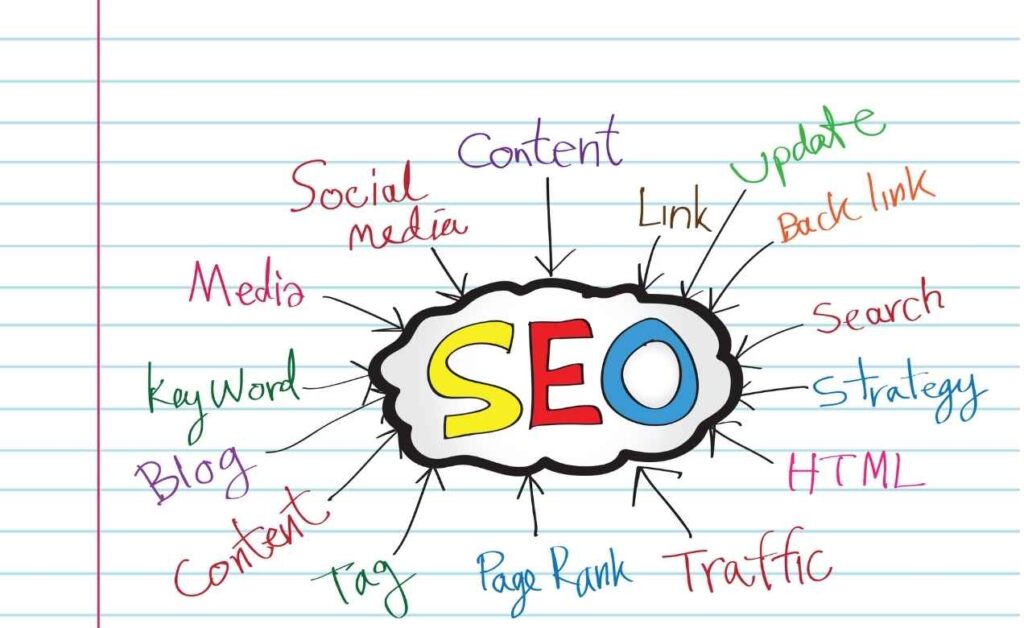
- Introduction
- What is Semantic SEO?
- Why Choose SemanticLast.com for Your SEO Strategy?
- The Power of Semantic Keywords
- Advanced Keyword Research with SemanticLast.com
- Optimizing On-Page Content with SemanticLast.com
- Content Relevance and User Intent
- Improving Site Structure with SemanticLast.com
- Boosting Organic Traffic Through Semantic SEO
- Using SemanticLast.com for Long-Tail Keywords
- Enhancing Technical SEO with SemanticLast.com
- Tracking and Analyzing SEO Performance with SemanticLast.com
- SemanticLast.com’s AI-Driven Insights
- Integrating SemanticLast.com with Other SEO Tools
- Conclusion
- FAQs
Introduction
In today’s digital world, having a strong SEO strategy isn’t just an option—it’s a necessity. Search engines like Google are becoming smarter and more sophisticated, focusing on user intent and relevance more than ever before. To keep up, businesses need an SEO approach that goes beyond basic keyword stuffing. That’s where semantic SEO comes into play, and tools like SemanticLast.com can make all the difference. If you’re wondering how SemanticLast.com can enhance your SEO strategy, you’re in the right place. Let’s dive into it.
What is Semantic SEO?
Semantic SEO is all about creating content that doesn’t just revolve around keywords but focuses on the meaning behind those keywords. It’s about understanding the context and intent behind a user’s search query, and delivering content that answers their needs in the most comprehensive and relevant way.
Google and other search engines now use advanced algorithms, such as RankBrain, to analyze search queries semantically. This means your content needs to focus on providing in-depth answers rather than targeting individual keywords. Semantic SEO helps you optimize for topic clusters, related terms, and user intent—all of which make your content more valuable in the eyes of search engines.
Why Choose SemanticLast.com for Your SEO Strategy?

SemanticLast.com is an innovative tool designed to leverage the power of semantic SEO. It helps you optimize your website’s content, structure, and overall SEO strategy by focusing on meaning rather than just words. What sets it apart from other SEO tools is its AI-driven approach to uncovering semantic relationships between topics, keywords, and phrases that are often overlooked by traditional SEO tools.
Whether you’re running a small blog or managing a large-scale website, SemanticLast.com offers unique insights that can supercharge your SEO efforts.
The Power of Semantic Keywords
Gone are the days when merely inserting a keyword in a blog post a few times could boost your rankings. Today, search engines look at the relationships between words and the meaning they convey. Semantic keywords are words and phrases that are closely related to your main keyword, helping search engines understand the broader topic you’re covering.
SemanticLast.com is designed to help you identify these related terms and contextually relevant keywords, ensuring that your content is naturally optimized for semantic search. This improves your chances of ranking for a wider variety of search queries without resorting to keyword stuffing.
Advanced Keyword Research with SemanticLast.com
Keyword research has evolved, and so have the tools needed to carry it out effectively. SemanticLast.com takes keyword research to the next level by identifying not just individual keywords but also the semantic relationships between them. This helps you build content that ranks not just for one keyword but for multiple related terms.
For example, if you’re targeting the keyword “best running shoes,” SemanticLast.com will suggest semantically related phrases like “most comfortable running shoes,” “running shoe reviews,” and “long-distance running footwear.” This helps you create content that covers a broad spectrum of user needs and search intents.
Optimizing On-Page Content with SemanticLast.com
Once you’ve got your list of keywords, the next step is on-page optimization. With SemanticLast.com, you can easily optimize each piece of content based on semantic relevance. The platform provides detailed suggestions on how to improve title tags, meta descriptions, headers, and body content, all while ensuring that your pages are contextually aligned with user intent.
Content Relevance and User Intent
Understanding and catering to user intent is crucial in today’s SEO landscape. Whether someone is looking to buy a product, learn more about a service, or simply gather information, your content needs to match their intent. SemanticLast.com analyzes your content for relevance and provides actionable insights to ensure that what you’re offering aligns perfectly with what your audience is searching for.
By focusing on user-centric content, SemanticLast.com helps you avoid creating pages that miss the mark and enhances your overall user engagement and satisfaction.
Improving Site Structure with SemanticLast.com
A well-structured website can make or break your SEO efforts. Search engines love sites that are easy to navigate, with clear internal linking structures and a logical hierarchy of pages. SemanticLast.com includes tools to help you optimize your site’s structure, improve internal linking, and create a more seamless user experience. By doing so, you not only improve your SEO but also make it easier for visitors to find the content they’re looking for.
Boosting Organic Traffic Through Semantic SEO
Semantic SEO isn’t just about ranking higher—it’s about driving more organic traffic. When your content answers a user’s question comprehensively and contextually, Google is more likely to prioritize it in search results. This means better visibility, more clicks, and ultimately, more traffic.
Success stories from SemanticLast.com users have shown that semantic optimization can significantly boost organic traffic, helping businesses improve their online visibility and conversions.
Using SemanticLast.com for Long-Tail Keywords
Long-tail keywords—those highly specific phrases that typically have lower search volume but higher intent—are an essential part of any SEO strategy. SemanticLast.com specializes in finding these hidden gems, allowing you to rank for queries that your competitors might overlook. By targeting these terms, you can attract more qualified traffic and improve your conversion rates.
Enhancing Technical SEO with SemanticLast.com
Technical SEO plays a vital role in ensuring that your website is crawlable and indexable by search engines. SemanticLast.com provides a suite of tools that help you enhance your technical SEO, from improving site speed to optimizing your site’s mobile usability and handling structured data. This ensures your site not only delivers relevant content but also provides a smooth user experience.
Tracking and Analyzing SEO Performance with SemanticLast.com
One of the most important aspects of any SEO strategy is tracking performance. SemanticLast.com offers powerful analytics and reporting features, helping you monitor keyword rankings, organic traffic, and other SEO metrics. Over time, you can use these insights to refine your strategy and continuously improve your rankings.
SemanticLast.com’s AI-Driven Insights
Artificial Intelligence (AI) is transforming how SEO is done, and SemanticLast.com is at the forefront of this revolution. Its AI-driven insights allow you to stay ahead of the competition by identifying emerging trends and untapped opportunities. With machine learning, the platform continuously updates and adapts to changes in search engine algorithms, ensuring that your SEO strategy remains cutting-edge.
Integrating SemanticLast.com with Other SEO Tools
While SemanticLast.com is a powerful tool on its own, it works even better when integrated with other popular SEO platforms like Google Analytics, SEMrush, or Ahrefs. By combining these tools, you can get a comprehensive view of your site’s performance and make data-driven decisions that elevate your SEO strategy to new heights.

Conclusion
Incorporating SemanticLast.com into your SEO strategy is a game-changer. Its focus on semantic SEO, user intent, and AI-driven insights ensures that your content is optimized for the modern search landscape. Whether you’re looking to improve your keyword research, optimize on-page content, or enhance your technical SEO, SemanticLast.com offers the tools and insights needed to stay ahead of the curve. It’s time to step up your SEO game with SemanticLast.com and start seeing real results.
FAQs
What is SemanticLast.com?
SemanticLast.com is an AI-driven SEO tool designed to help users optimize their websites based on semantic SEO principles, focusing on user intent and content relevance.
How does SemanticLast.com improve my SEO rankings?
It provides advanced keyword research, content optimization, and AI-driven insights that enhance both on-page and off-page SEO efforts.
Can beginners use SemanticLast.com effectively?
Absolutely! SemanticLast.com’s user-friendly interface and actionable insights make it easy for beginners to get started.
What makes semantic SEO different from traditional SEO?
Semantic SEO focuses on the meaning behind keywords and user intent, while traditional SEO typically targets specific keywords and phrases.
How can I get started with SemanticLast.com?
Simply sign up for an account on their website, explore their tools, and start optimizing your content for better search engine visibility.


